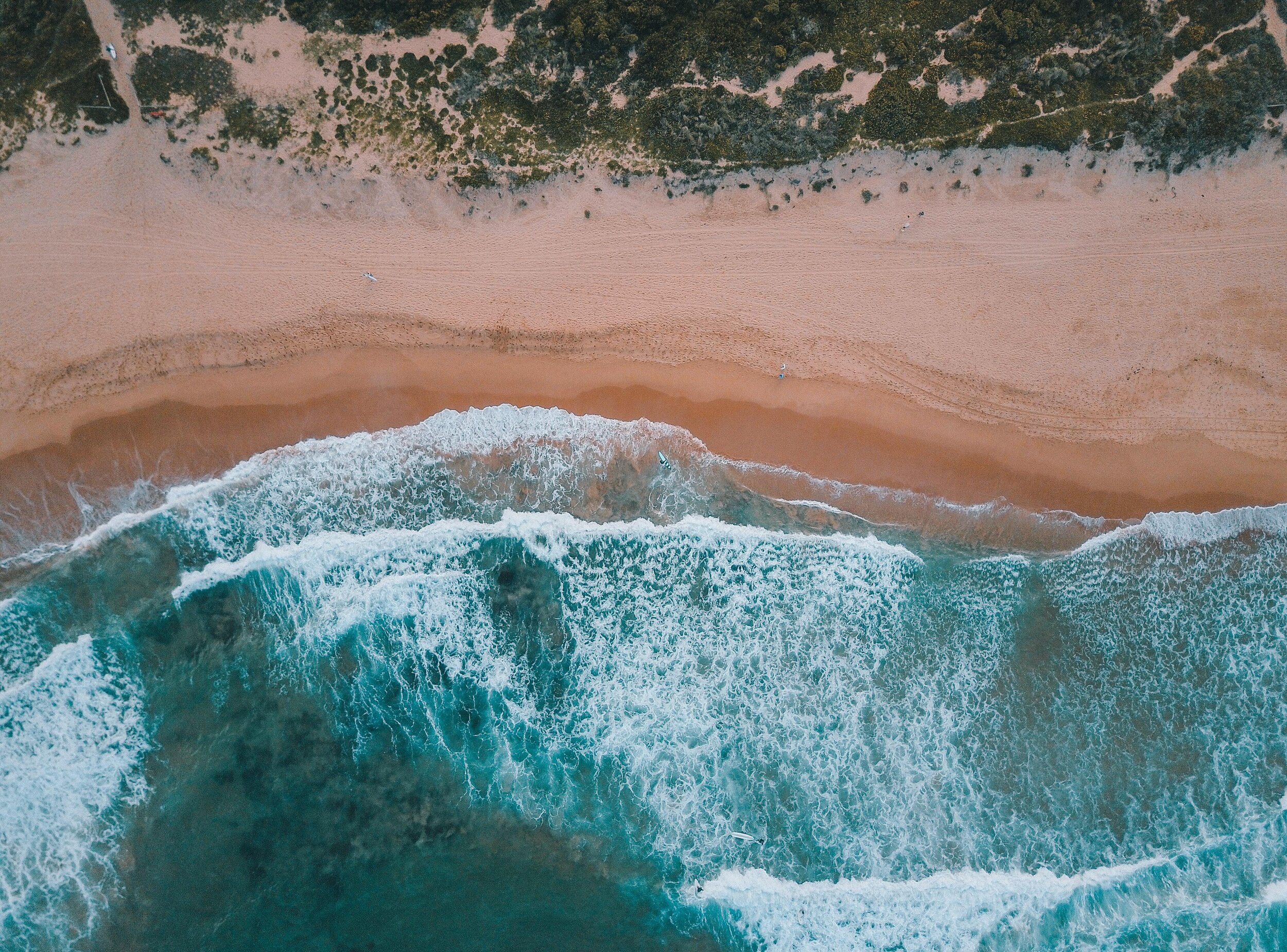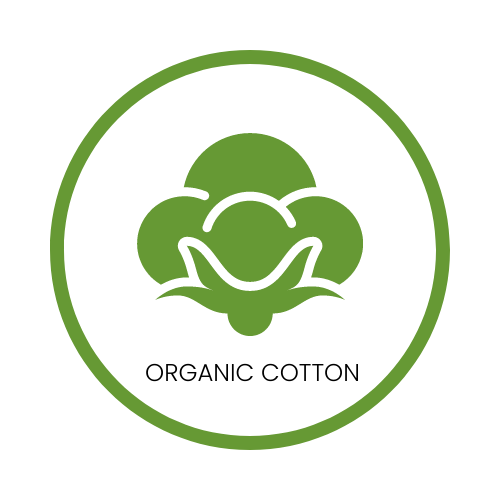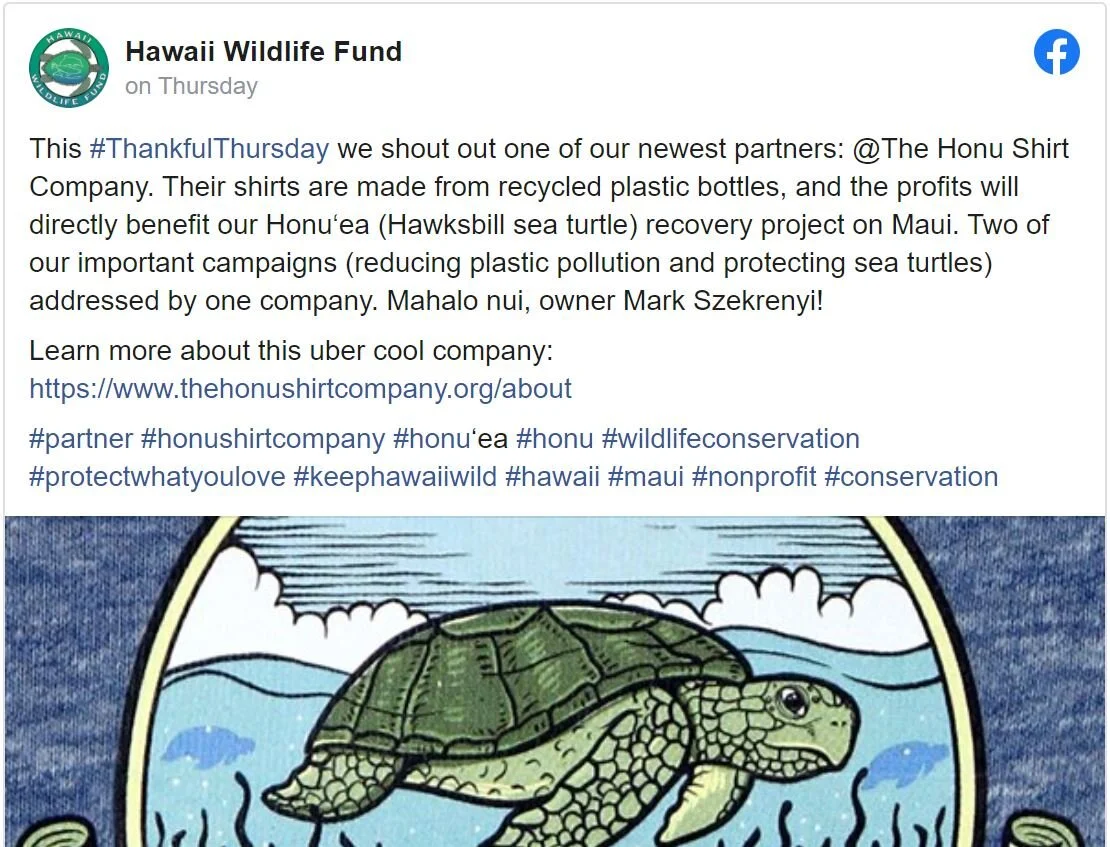You asked - we answered!
How is our product actually made? What is the process of turning plastic bottles into our signature fabric? From sourcing harmful materials to revealing the best parts of our fabric, we explain these important processes so you can better understand our business.

How It’s Made
What is rPET & How is it Made?
PET, or Polyethylene Terephthalate, is a type of plastic and a form of polyester. Fortunately, it can be fully recycled! In this case, it becomes rPET, or recycled Polyethylene Terephthalate. Once bottles are collected, sorted, cleaned, and chopped into small fragments, they are processed into a polyester thread. That thread, then, becomes our shirts!
How many plastic bottles are recycled into every shirt?
While 50% of every shirt is made of recycled plastic, the exact amount depends on the size and type of shirt. For example, most full sized shirts are made with 6-7 bottles! Smaller shirts, like the Ladies Crop Top, recycle about 4 bottles.
Remember — every shirt is unique! Plastic bottles come in many different colors, so color variations in the fabric are natural. These are not defects, but rather the result of an environmentally friendly production process.
What is organic Cotton?
To make the fabric, our “Made in USA” supplier blends the rPET with organic cotton. Certified organic cotton is grown without genetically modified plants or the use of any synthetic agricultural chemicals, like fertilizers or pesticides (except as allowed by the certified organic restrictions). This is contributes to biodiversity and sustainability, which is important to us.
Are the shirts fabricated in the united states?
YES! Beginning in New York, a reputable manufacturer provides the blank shirts. Then, The Honu Shirt Company collects the designed transfer art from a screen printer in Virginia. Finally, The Honu Shirt Company hand-finishes the shirts in California! The Honu Shirt Company, LLC is a minority-owned, family-run small business. We greatly appreciate your support!
Do you actually donate 100% of profits?
YES! we annually donate 100% of our net profits to a 501(c)(3) organization. The Honu Shirt Company, LLC is an official partner with the Hawai’i Wildlife Fund (HWF). The HWF is a non-profit organization dedicated to the conservation of Hawai’i’s native wildlife through research, education, and advocacy.
We contribute to HWF in three ways. First, a minimum of 10% of every green or blue t-shirt sale is immediately donated to the HWF. Second, a minimum of 40% of every adoption package is donated immediately to the HWF. Third, the Honu Shirt Company, LLC donates 100% of net profits annually to the HWF.

How can i help?
Support
We always love your support! One of the biggest ways to help is by raising awareness. A great way to do this is by taking pictures of our products, posting on social media, and tagging us! You can even encourage your followers to check us out. We might even repost!
Adopt a Turtle
One way we love to support the HWF is by funding their protection of the Hawai’ian hawksbill turtles. We do this by allowing you to “adopt” a turtle with a donation. Since 1996, the HWF team and volunteers have helped to protect and release nearly 10,000 hawksbill hatchlings!
Reduce Plastic Ocean Pollution
1) Reduce your use of single use plastics. Wherever you live, the easiest and most direct way to start is by reducing your own use of single use plastics, including 16.9 oz water bottles.
2) Recycle properly. When you use plastics that can be recycled, always recycle them! Right now, only 9% of plastic is recycled worldwide.
3) Clean the beach. Help remove plastics and prevent them from getting to the ocean by participating in or organizing a clean up of your local beach or waterway.
4) Support bans. Many municipalities around the world have enacted bans on single use plastic bags, takeout containers, and bottles. Support the adoption of such policies in your community!
5) Avoid microbeads. Tiny plastic particles called “microbeads” have become a growing source of plastic ocean pollution in recent years.
6) Spread the word. Stay informed on issues related to plastic pollution and help others become aware of the problem. Tell your friends and family how they can be part of the solution!
7) Support organizations. There are many organizations, like us, working to reduce and eliminated plastic ocean pollution in a variety of ways. These organizations rely on support from people like you to continue their important work.

Read our story!
Learn how founder Mark and his dad started a company out of a passion and concern for the well-being of the Honu’ea and the oceans that surround them.








